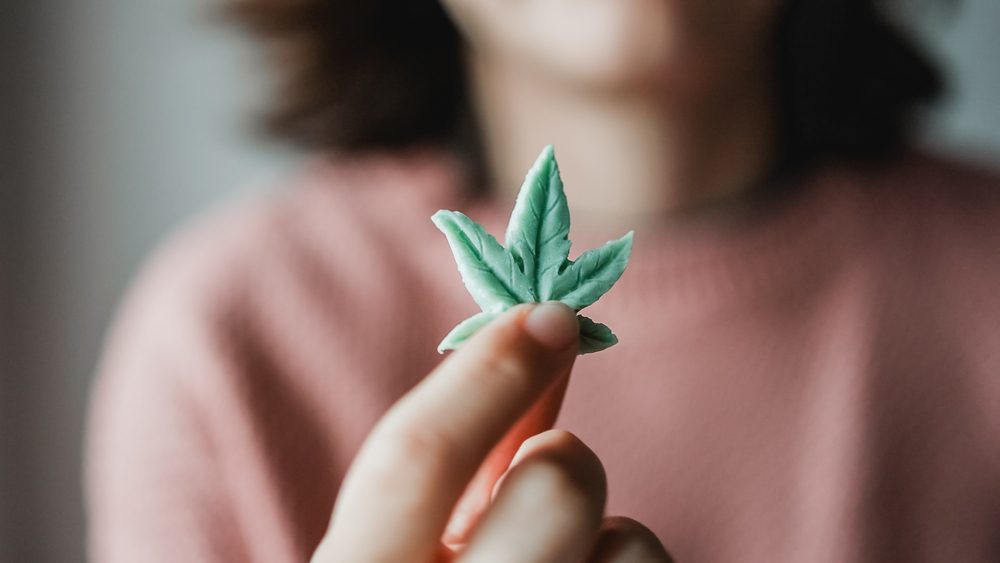Medical marijuana users seem less mindful of the harmful communication techniques they can utilize with their partners in conflict-resolution situations.
People who use marijuana may mistakenly believe they are better at handling conflict resolution talks in intimate relationships than they are. Therefore, they fail to detect any potentially dangerous dynamics that might be present.
However, while direct conflict resolution might not go as smoothly as someone under the influence might expect, the type of communication needed in relationships could be improved by medical marijuana use.

How Medical Marijuana Can Improve Communication and Conflict Resolution
The degree to which individuals felt committed to and content with their relationship with each other and their conduct and physiology throughout a conflict encounter in a lab setting are all measures of how well a relationship works. When discussing how medical marijuana use enhances communication and conflict resolution, all of these get considered.
Negative Effects on Communication in Relationships
Long-term medical marijuana use can potentially impact behavior and communication abilities in relationships. Marijuana users can develop a dependence on the substance after consuming excessive amounts. As a result of their dependence, stopping causes them to experience withdrawal. Hence, to maintain control, they keep using marijuana.
All others besides the user observe the changes in mindset and conduct brought on by this. They become so consumed with their need for the substance that they act in ways that are out of character for them.

Positive Effects on Communication in Relationships
There are numerous explanations for why people consume cannabis, but some more frequently cited ones are relaxation, stress alleviation, and general well-being. Many patients claim to use cannabis for both recreational purposes and symptom alleviation.
It is known that better outcomes will occur when people are calmer before engaging in a discussion.
The Best Cannabis Strains and Consumption Methods for Improving Communication In relationship
So, what are some recommended cannabis strains or consumption methods for improving communication with medical marijuana?
Edibles
THC/CBD oil or edibles are the finest cannabis strain products to enhance social abilities and communication through gaining boosting your verbal episodic memory. This boost is a fancy way of saying you can remember exactly what people say, which is helpful in enhancing communication.
The cause is that marijuana oil and edibles require time to break down and gradually absorb throughout the day in the circulatory system.
Depending on the dose, the advantages of cannabis oil or edibles include the possibility of carrying out your tasks without getting high.

Smoking
One can use cannabis in the body as quickly as possible by smoking or vaping it. Then you may enjoy conversing with people with less stress and anxiety while letting your words flow naturally, like a skilled communicator.
Mindful Consumption: Using Medical Marijuana for Mindful Communication in Relationships
According to an investigation, people who used cannabis more regularly showed less parasympathetic disengagement while interacting with their partner, which suggests a decreased ability to react quickly when under stress.
Additionally, they made more demands and feedback, averted tension during the conversation, and were less capable of refocusing on the topic of their relationship’s good elements.
Contrarily, consumers of marijuana did not view themselves as utilizing pressure or evasive methods and expressed more fulfillment with how the issue settled when asked how they believed the conflict resolution and talk went.
Therefore, exhibiting mindfulness in your consumption, as well as during a conflict is perhaps a better representation of how to enhance your communication.
Examples of How to Use Medical Marijuana to Improve Communication in Relationships
1. Medical Marijuana Can Help You Focus Before a Difficult Conversation
In most relationships, at one time or another, there is a heated conversation about money. If you share your finances or a household with someone, it is almost inevitable that you will have differing opinions on finances, which can get personal quickly.
To help mitigate the tendency to argue instead of discuss finances, or other stressors in your relationship, use medical marijuana to help you focus and communicate more directly, with less emotion and anger fueling your discussion.
2. Use Medical Marijuana to Express Yourself
Sometimes it can be difficult to communicate your feelings accurately when you’re in a relationship. Whether it is due to anxiety or not having the right words, it can be frustrating when you fall short of expressing yourself to your partner.
Medical marijuana can help you express yourself uniquely and creatively without anxiety or previous experiences holding you back. Some people feel they are their best selves when they use cannabis, which has to do with the enhanced ability to communicate their feelings.
3. Use Medical Marijuana Together
If you use cannabis together, your communication will improve because you are both in a calm, freeing, and pleasant headspace.
Getting high with a romantic partner or a friend builds a shared trust in that relationship. However, more than that, you communicate more freely while you are high. You will talk, discover, and dream together in a way that will bring you closer together.
Using medical marijuana together can be a game-changer for your shared communication comfortability.
Final Thoughts
Engaging in conversations relating to conflict resolution could be stressful. When one needs a little help, there are cannabis strains one could use to ease the mind while the confrontation is ongoing.
Considering using medical marijuana? Book an appointment with a doctor here!
FAQ
How does long-term medical marijuana use affect communication in relationships?
Prolonged use of medical marijuana may lead to dependence and withdrawal, impacting behavior and communication abilities. Those dependent on the substance may exhibit changes in mindset and behavior that are noticeable to others, affecting their relationships.
What are the positive effects of medical marijuana on communication in relationships?
Medical marijuana is often used for relaxation, stress alleviation, and general well-being. Users claim better outcomes in communication and conflict resolution, as a calmer state of mind can lead to more effective discussions.
What cannabis strains or consumption methods are recommended for improving communication in relationships?
Recommended methods include using THC/CBD oil or edibles, as they enhance verbal episodic memory and provide a gradual absorption throughout the day. Smoking or vaping can also facilitate quick effects, reducing stress and anxiety during conversations.
